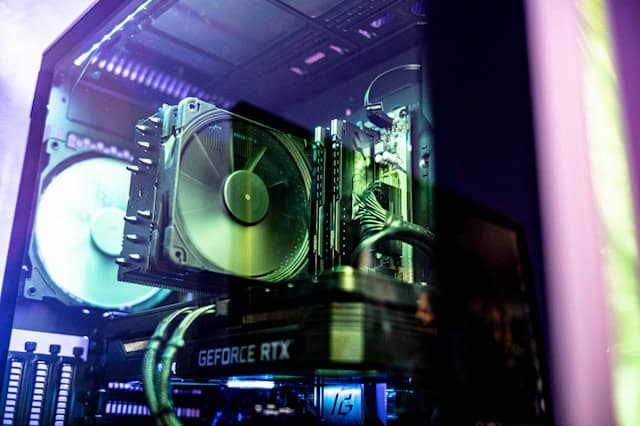From basic pixelated pleasure, computer games have developed into a cultural powerhouse influencing current culture. Far beyond simple hobby, they shape our connection, learning process, and even perspective of the world. Unquestionably, computer games have had an influence with immersive virtual worlds, esports events, and gaming communities growing. This paper investigates their many functions by including their psychological, societal, and economic consequences and thus answers important issues about their importance.
Computer Games: Their Development
Beginning decades ago, computer games evolved from simple arcade games to complex virtual reality experiences, marking a significant shift in the gaming industry. The change reflects advancements in technology, such as more powerful processors, improved graphics, and enhanced AI. This growth in gaming complexity also caters to the increasing demand for more immersive and interactive entertainment. As a result, games now offer vast open worlds, realistic simulations, and intricate narratives that keep players engaged for hours. The evolution has also expanded to various genres, including sports simulations, where games like tactical football prediction platforms are becoming increasingly popular. These platforms use real-time data and predictive analytics to forecast football match outcomes, adding another layer of excitement to the gaming experience. With the rapid pace of innovation, it’s clear that the gaming industry will continue to evolve, offering new ways for players to experience entertainment.
Virtual Reality via Arcade
With their basic yet addicting principles, arcade games like Pong helped consumers discover digital play in the 1970s. Home consoles like the Atari 2600 introduced gaming into living rooms during the 1980s, effectively transforming this domestic pastime. 3D visuals with games like Doom transformed immersion in the 1990s. By use of virtual reality (VR) devices such as Oculus Rift and PlayStation VR, fast forward to today finds completely immersive virtual worlds that combine gaming with advanced technologies. These developments address the issue, How have computer games changed over time? From simple 2D interfaces to sophisticated, sensory-rich experiences redefining interactive entertainment.
Essential Gaming Technology Achievements
Gaming technology has developed via a number of turning points. Late 1990s multiplayer online games as EverQuest helped to build gaming communities and social engagement. Mobile gaming arrived in the 2000s thanks to cellphones allowing games like Angry Birds to spread all across the world. Now a billion-dollar sector, esports first became competitive when games like League of Legend attracted millions of players to events. These benchmarks call for Modern gaming has been molded by technology; a mix of connection, accessibility, and processing capability has made gaming a vibrant, inclusive media.
| Milestone | Year | Impact |
| Arcade Games (e.g., Pong) | 1970s | Introduced gaming to the masses |
| 3D Graphics (Doom) | 1990s | Enhanced visual immersion and gameplay complexity |
| Multiplayer Online Games | Late 1990s | Built gaming communities and social interaction |
| Mobile Gaming | 2000s | Made gaming accessible anytime, anywhere |
| Esports Tournaments | 2010s | Turned gaming into a professional, spectator-driven industry |
Computer Game Social Effects
More than just pleasure, computer games are a social glue that helps to create relationships and shapes behavior in contemporary culture. They affect our interactions, teamwork, and even our perspective of ourselves. Through online multiplayer experiences, players from all over the world can connect, form friendships, and collaborate towards common goals. These games also offer a sense of identity and achievement, fostering a sense of belonging in virtual communities. According to a Forbes article, the impact of gaming extends beyond entertainment, influencing social dynamics, personal growth, and even business trends in today’s society. As gaming continues to evolve, its role as a catalyst for social interaction and cultural influence only becomes more pronounced.
Creating Communities Through Entertainment
Gaming communities are becoming active centers where people interact around common interests. Gamers may speak, plan, and create connections across borders on sites like Discord and Twitch. Games like Fortnite and World of Warcraft inspire group projects, responding to What effects on social connections do computer games have? by setting apart areas for cooperation and communication. With players building guilds, alliances, and even lifetime ties, these virtual worlds can reflect real-world social dynamics. Esports events, for example, not only highlight ability but also bring together followers across world celebrations of gaming culture.
Positive and Negative Social Influences
Social advantages abound from computer gaming. As cooperative games like StarCraft show, they foster problem-solving and collaboration. For self-expression especially for underprivileged groups who find acceptance in gaming communities, they also provide safe venues. But still, What good and bad effects on society gaming brings? also has negative effects. With research indicating 1-10% of players show negative behavior, excessive gaming might cause isolation or addiction. Another issue is cyberbullying in online games; nonetheless, platforms are using moderation tools to fight toxicity more and more.
Positive Effects:
- Encourages teamwork and collaboration
- Builds global gaming communities
- Offers inclusive spaces for self-expression
Negative Effects:
- Risk of gaming addiction
- Potential for cyberbullying
- Possible social isolation from excessive play
This part emphasizes the significant part computer games play in forming social relationships and contemporary culture by using phrases like virtual worlds, esports events, and gaming communities organically.
